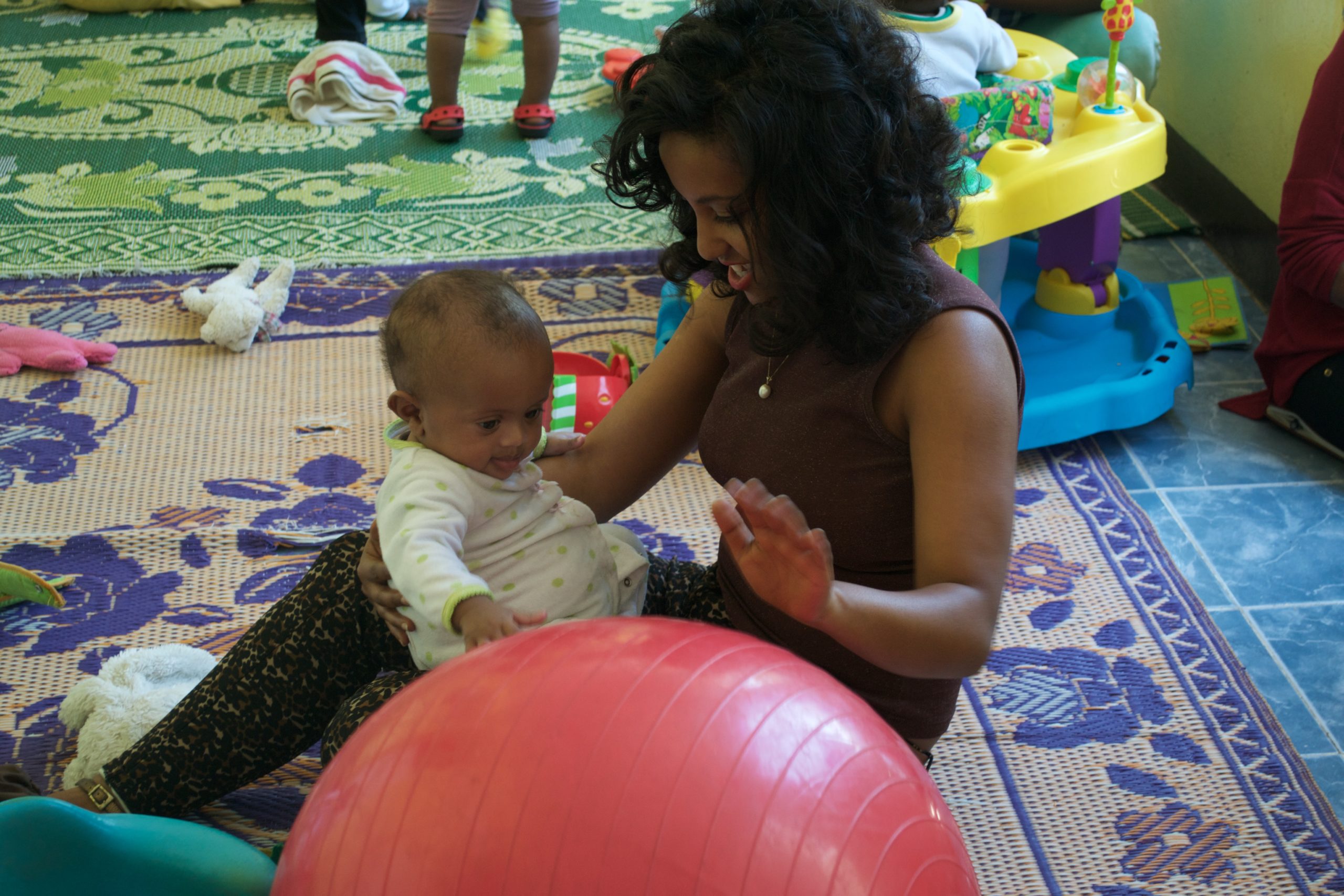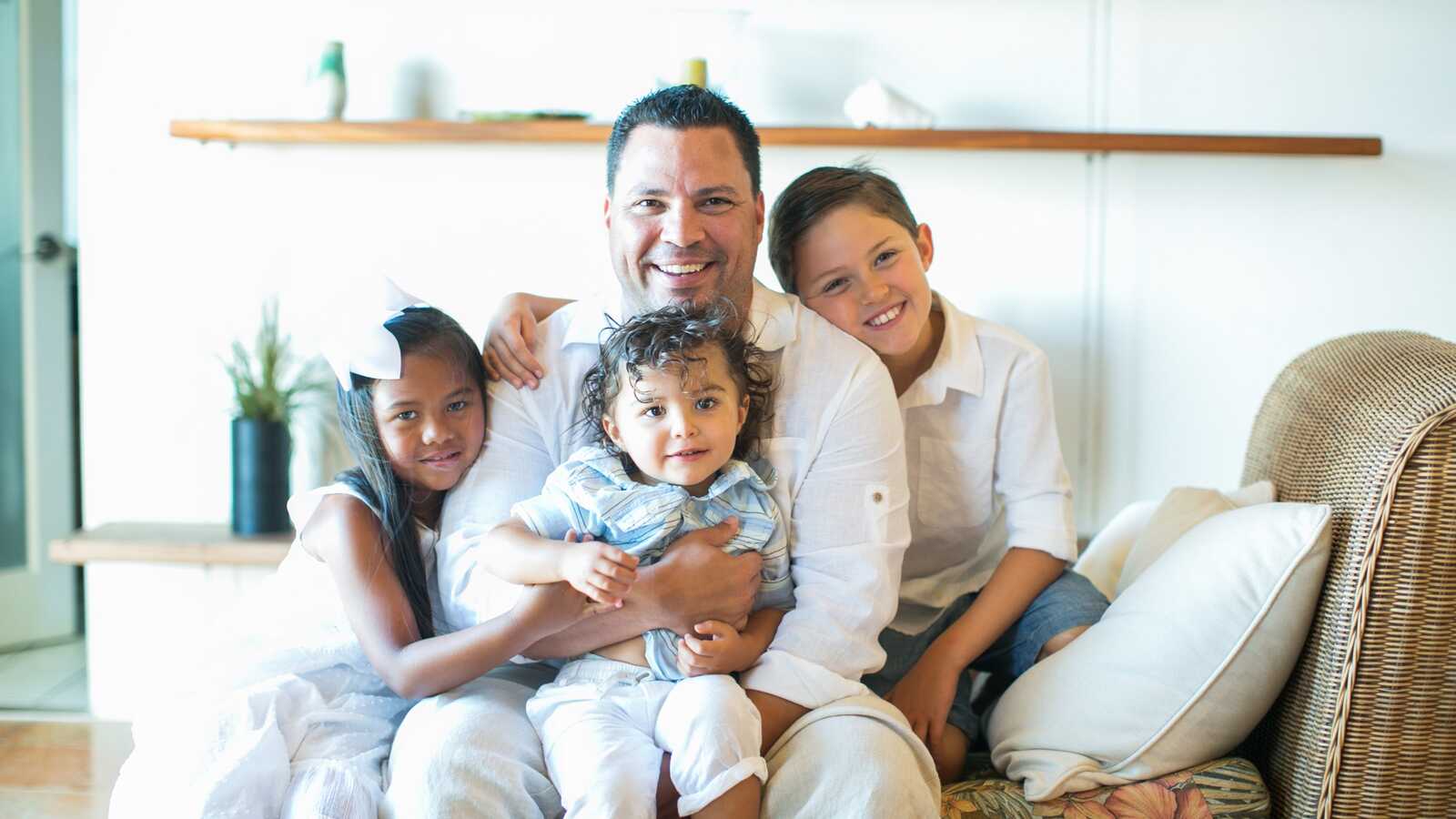When you engage in positive interaction with your child, starting from birth and through each developmental stage, they reap substantial benefits for their lifetime. Interaction with your child can be especially important for supporting the development of children who have been adopted.
What Is Interaction?
Interaction is another way of saying “relationships.” Positive relationships are the foundation for raising healthy children. Interaction also refers to a child’s social-emotional health and well-being, which is a cornerstone in their development. The relationships children have with their caregivers, including the day-to-day moments they share during feedings or meals, are interactions.
Why Is Interaction With Your Child Important?
Regulation, or a child’s ability to become and stay calm, is essential for development, especially for feeding. For a child to be able to eat well, she first must be calm. Once calm, children are better able to interact with others, and eat and feed themselves with a greater chance of success. While children are developing, they need extra support from caregivers to become and stay calm. Reliable, safe and positive relationships with caregivers are the first way that a child begins learning how to become calm.
Regular and frequent positive interactions with children are the primary way to best support a child’s complete development.
The type of care we provide for a child matters deeply. There is an important difference between custodial care and optimal caregiving for children. Taking care of a child’s basic needs, such as feeding, bathing and dressing (also known as “custodial care”), is hard work and incredibly important.
However, when caregivers provide optimal caregiving, they go above and beyond by offering children positive, supportive and loving interactions.
When Is the Right Time for Interaction With Your Child?
Every child deserves the opportunity to grow and develop to their fullest potential. Regular and frequent positive interactions with children are the primary way to best support a child’s complete development. By thoughtfully including frequent moments of connection throughout a child’s day, caregivers are growing calmer, stronger, healthier children, in addition to functional and flourishing adults.
Thoughtful Interactions During Daily Routines
Mealtime Interactions
- Holding you child while bottle feeding
- Providing a quiet environment and looking at your child during feedings
- Talking, singing and smiling at your child
- Eating meals with an older child
- Offering positive support and praise for self-feeding
- Offering your child opportunities to assist with washing before a meal and cleaning up afterward
Interactions During Diaper Changes
- Talking, singing and smiling at child
- Offering soothing touches
- Making fun faces and sounds with a child
- Responding consistently to his signs or cries for a new diaper
- Having consistent diapering and toileting schedules for children
- Offering positive support and praise for a child’s attempts to alert caregivers for help with diapering and toileting

Check out additional parenting resources!
View our expanded list of recommended parenting websites, books and other resources organized by topic.
Interactions While Dressing and Undressing Your Child
- Repeating child’s faces, sounds and words
- Following predictable dressing and undressing routines
- Having the same caregiver dress and undress a child
- Offering positive support and praise for a child’s attempts to help with dressing and undressing or practicing themselves
Interactions During Bathing and Washing Routines
- Talking, singing and smiling at child
- Offer soothing touches
- Bathing as often as needed
- Offering positive support and praise for a child’s attempts to help with bathing and washing
Interactions During Waking and Resting Routines
- Swaddling young babies when appropriate
- Offering calming, repeated movements to soothe child, such as rocking, bouncing, patting, swaying, etc.
- Following predictable wake-up and resting routines
- Responding to child in a timely manner when they wake
Playtime Interaction With Your Child
- Playing on the ground, floor or bed with your child at eye level
- Making fun sounds and faces with a child
- Looking at a child often during play
- Playing often throughout the day
Interactions While Holding, Carrying and Comforting Your Child
- Wearing child in wrap, pack, blanket, etc., to calm them and keep them close
- Snuggling child each day and often
- Offering consistent comfort and soothing when a child becomes upset
- Responding to moments of distress in a timely manner
- Talking, singing and smiling at a child during calm moments and moments of distress
- Offering the older child “cozy corners” or “quiet spaces” to use for calming when upset or overstimulated
Enjoyable connections with others strengthen a child’s development. When children do not have anyone to consistently depend on, and when they do not experience positive relationships, their growth and development can be severely stunted. Because of this, caregivers play a vital role in developing not only physically strong children but emotionally strong children as well. Every activity and routine throughout the day is an opportunity to positively impact a child’s life.
For more information on interaction with your child, see Chapter 8 Section 8.2 of Holt’s Feeding and Positioning Manual.

Receive Post Adoption Coaching & Education
All parents encounter challenges as their children grow up. And sometimes, issues may arise that leave you uncertain as to how best to respond. But not every issue requires therapy or counseling. The PACE program is here to help during those times.


